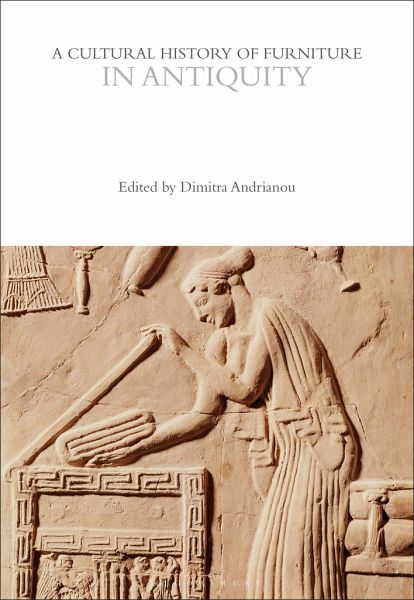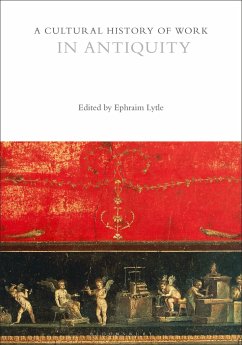
A Cultural History of Furniture in Antiquity
Versandkostenfrei!
Versandfertig in über 4 Wochen
98,99 €
inkl. MwSt.

PAYBACK Punkte
49 °P sammeln!
Covering the period from 2500 BCE to the Byzantine Era, this volume in A Cultural History of Furniture focuses on the social history of furniture found in houses, tombs, and temples as narrated through the archaeological evidence. The earliest furniture can be seen as an attempt by humans to enhance their safety, comfort, and social standing but it can also offer opportunities for understanding human behavior, values, and thought: fine furniture was among the most valuable of possessions in the ancient world so it expressed power, wealth, and status. It was appreciated as art, used in diplomac...
Covering the period from 2500 BCE to the Byzantine Era, this volume in A Cultural History of Furniture focuses on the social history of furniture found in houses, tombs, and temples as narrated through the archaeological evidence. The earliest furniture can be seen as an attempt by humans to enhance their safety, comfort, and social standing but it can also offer opportunities for understanding human behavior, values, and thought: fine furniture was among the most valuable of possessions in the ancient world so it expressed power, wealth, and status. It was appreciated as art, used in diplomacy (both as a gift and as tribute), and recorded as booty. At the same time, its practical and ceremonial uses yield important clues about the domestic environment and daily life in antiquity, as well as revealing aspects of sacred belief and funerary practices. Drawing upon a wealth of visual and textual sources, this volume presents essays that examine key characteristics of the furniture of the ancient period on the themes of design and motifs; makers, making, and materials; types and uses; the domestic setting; the public setting; exhibition and display; furniture and architecture; visual representations; and verbal representations.












